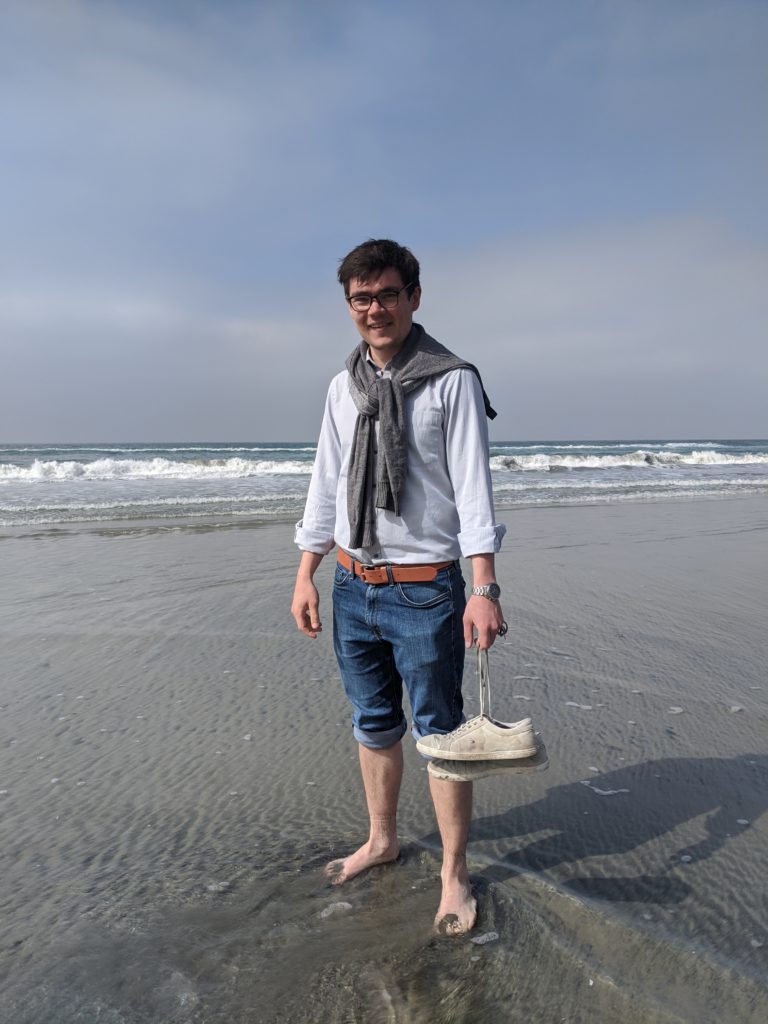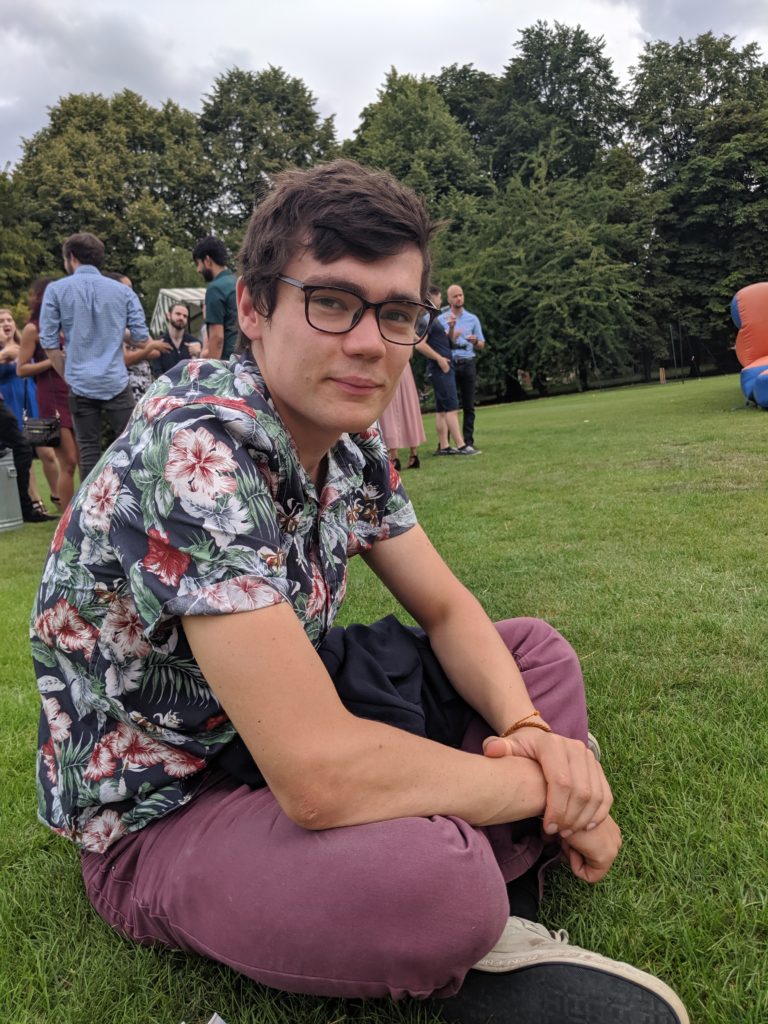SciSoc Spotlight Issue 8 – Alexander P. Fellows
9 November 2020. Alex Fellows is with the Department of Chemistry, School of Physical Sciences. A PDF version of this Issue is available here.Research focus: Vibrational nanospectroscopy and microscopy of biosubstrate surfaces and molecular films
I utilise spectroscopic techniques to selectively probe surfaces of biological or biologically relevant substrates. Specifically, the two main techniques I use are Atomic Force Microscopy Nano-IR Spectroscopy (AFM IR), which can correlate spectroscopic measurements to physical properties of the surface e.g. topography, stiffness, etc., and Sum-Frequency Generation spectroscopy (SFG), which is a non-linear optical process that achieves sub-monolayer resolution and is entirely surface specific. A recent project that I have been working on has used these techniques to analyse human red blood cells (RBCs) from patients with sickle cell disease (SCD), a disease that afflicts millions worldwide. There is currently no cure for SCD, only treatments that manage its symptoms. One particular, common symptom is vaso-occulsion crises where RBCs clump together and block small-aperture blood vessels, thus causing painful episodes. This is believed to arise from increased cell adhesion resulting from oxidative stress to the RBC lipid membrane. It is therefore the aim of this project to elucidate the causes of this increased adhesion with the ultimate goal of leading to potential treatments that can prevent such episodes from occurring.
What made you decide to pursue research?
Science is a history lesson. Each year, we study more topics covering content that takes us closer and closer to the present day, but never quite reaching it. What fascinates me, however, is not learning about the past discoveries and breakthroughs of our academic forebears but surpassing this inspirational work and exploring the unknown. Some of the greatest achievements of our species have come from breaking the perceived boundaries and asking the plain and simple question of “Why?”. The world of research is very much about taking that extra step out of one’s comfort zone, into uncharted territory, but for that very reason, it is full of excitement and can be very rewarding. My decision to pursue research was due to this fascination of exploring the unknown and continuing along the path of mental stimulation that is impossible to replicate elsewhere.
What would be your advice to aspiring researchers?
The fundamental question that you should ask yourself if you are considering doing a PhD is not “Am I cut out for it?” or “Will this help me with…?”, but rather “Why am I considering this?”. This can often lead to frustration in your project and doubt in your decision to do it. Therefore, in order for the relationship between you and your research to be fruitful, you need to be both patient and invested. For this, interest and excitement are the key. My advice would be to ask yourself why you would be continuing into research and if the answer is not related to satisfying or arousing your interest, you may find yourself spending years of your life only to find out that this path is not for you.Trackback from your site.
